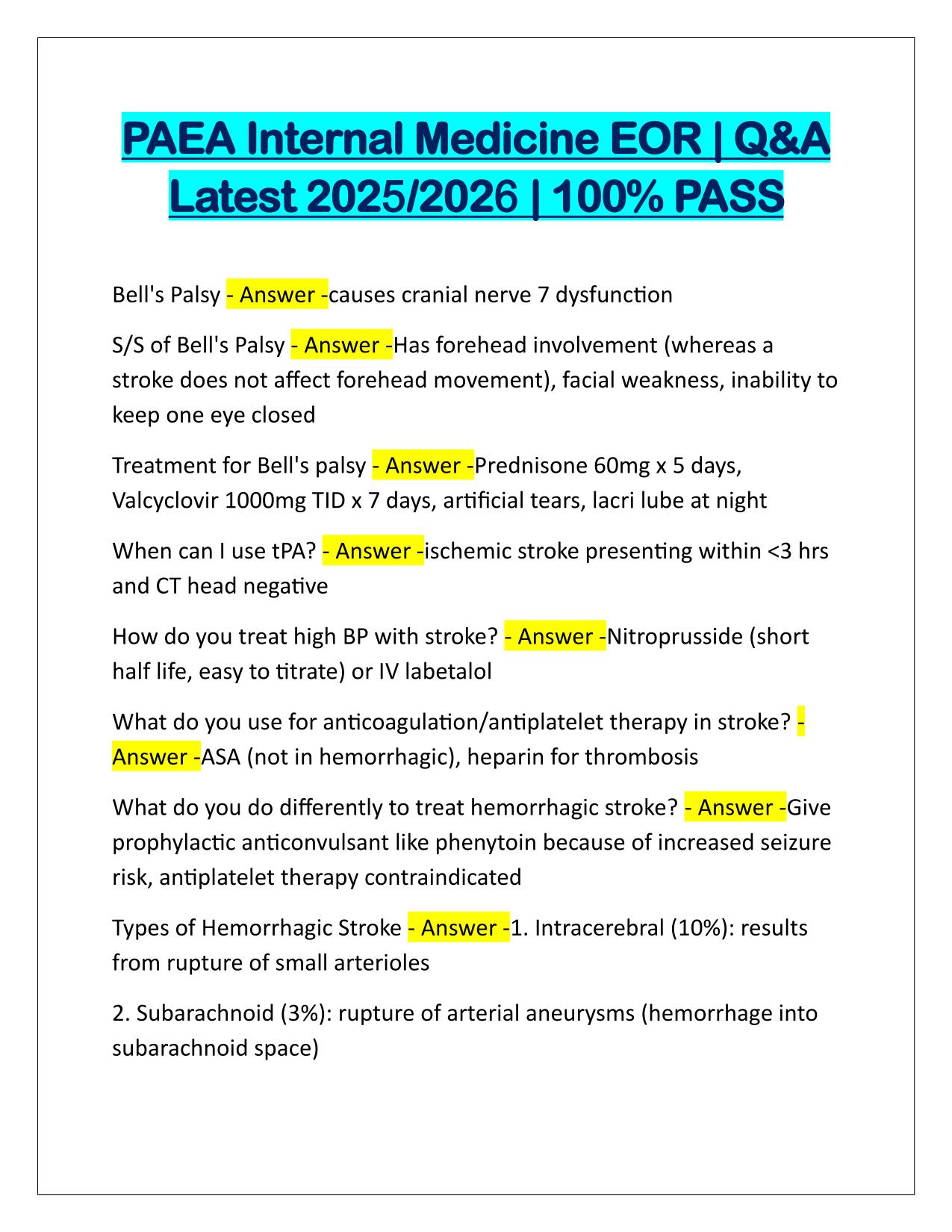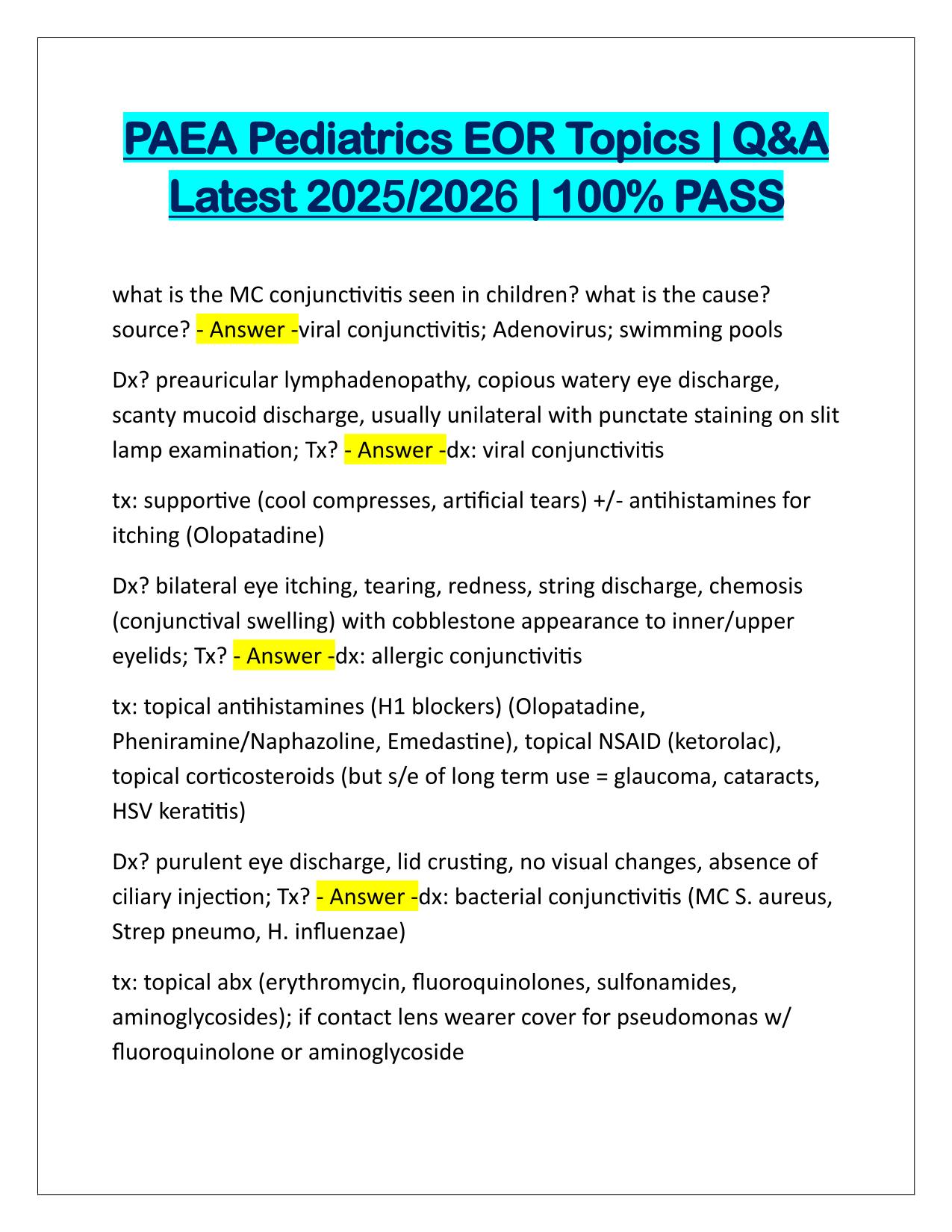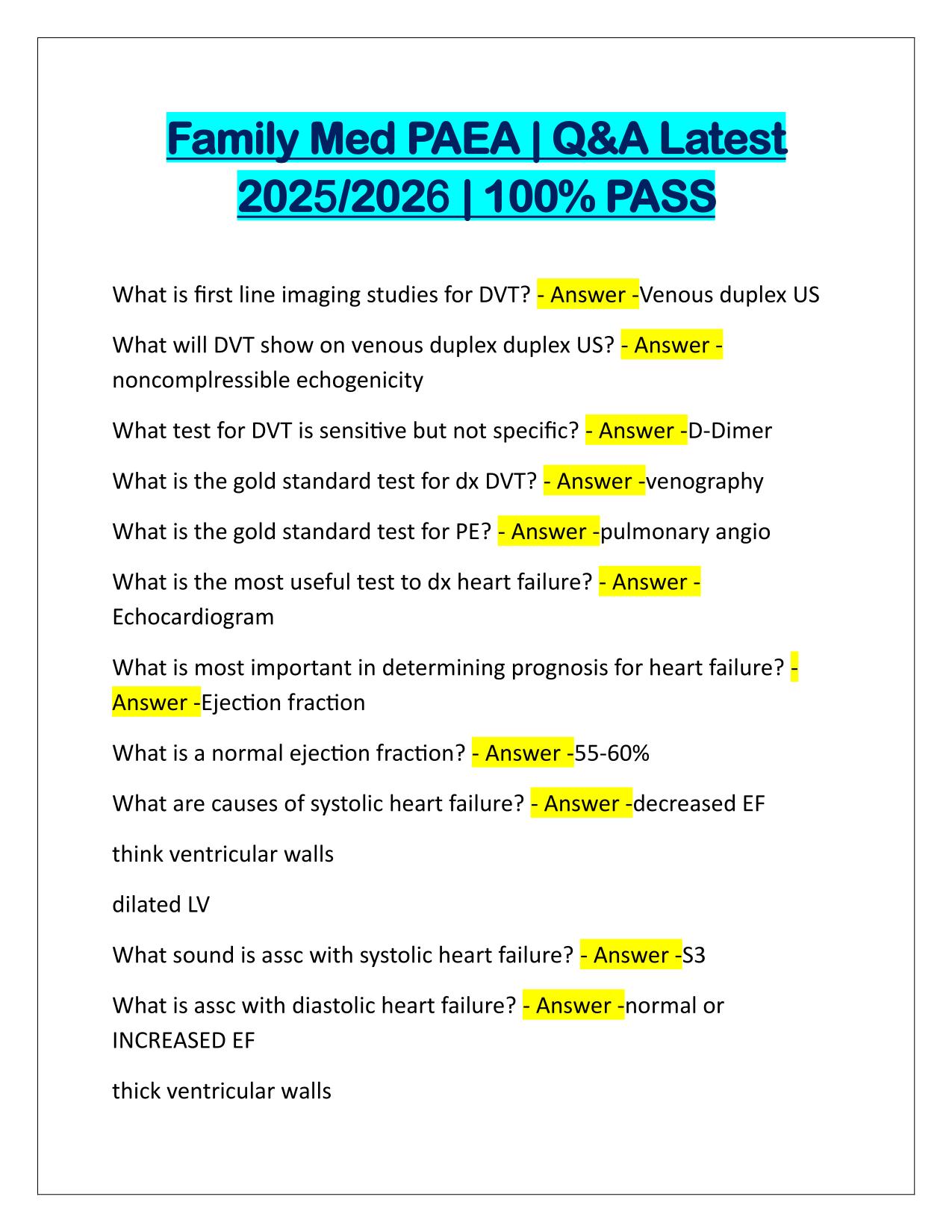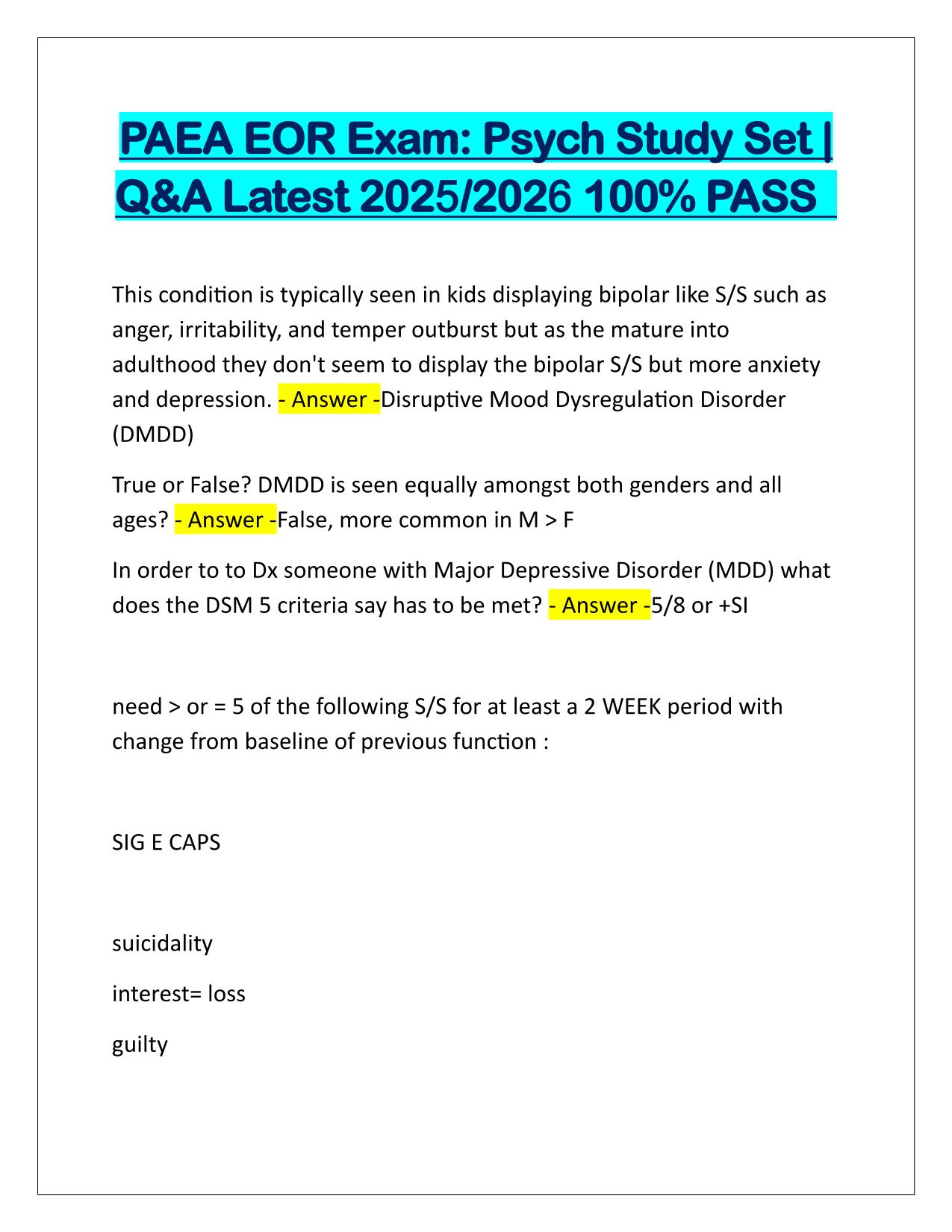PAEA Internal Medicine EOR EXAM Q&A Latest Update
Course:
PAEA
Institution:
PAEA
PAEA Internal Medicine EOR EXAM Q&A Latest Update
After purchase, you get:
✅ Instant PDF Download
✅ Verified answer explanations
✅ Refund if not Satisfied
✅ Prepared for 2025/2026 test cycle
Document Information
| Uploaded on: | May 11, 2025 |
| Last updated: | May 12, 2025 |
| Number of pages: | 132 |
| Written in: | 2025/2026 |
| Type: | Exam (elaborations) |
| Contains: | Questions & Answers |
| Tags: | PAEA Internal Medicine EOR EXAM Q&A Latest Update |
Seller Information

AdelineJean
User Reviews (0)
Exam (Elaborations)
$10.00
Bundle Deal! Get all 9 docs for just $20.00
Add to Cart
100% satisfaction guarantee
Refund Upon dissatisfaction
Immediately available after purchase
Available in Both online and PDF
$10.00
| 0 sold
Related Documents
Available in a Bundle
Content Preview
PAEA Internal Medicine EOR | Q&A Latest 2025/2026 | 100% PASS Bell's Palsy - Answer -causes cranial nerve 7 dysfunction S/S of Bell's Palsy - Answer -Has forehead involvement (whereas a stroke does not affect forehead movement), facial weakness, inability to keep one eye closed Treatment for Bell's palsy - Answer -Prednisone 60mg x 5 days, Valcyclovir 1000mg TID x 7 days, artificial tears, lacri lube at night When can I use tPA? - Answer -ischemic stroke presenting within <3 hrs and CT head negative How do you treat high BP with stroke? - Answer -Nitroprusside (short half life, easy to titrate) or IV labetalol What do you use for anticoagulation/antiplatelet therapy in stroke? Answer -ASA (not in hemorrhagic), heparin for thrombosis What do you do differently to treat hemorrhagic stroke? - Answer -Give prophylactic anticonvulsant like phenytoin because of increased seizure risk, antiplatelet therapy contraindicated Types of Hemorrhagic Stroke - Answer -1. Intracerebral (10%): results from rupture of small arterioles 2. Subarachnoid (3%): rupture of arterial aneurysms (hemorrhage into subarachnoid space)






